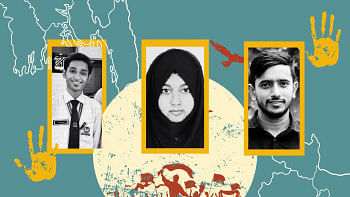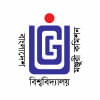Seven colleges, one crisis: Dhaka University’s affiliation nightmare

The ongoing demand by students to decouple seven Dhaka-based government colleges from the country's premier university is a by-product of an ill-conceived and overhasty decision. When these colleges were integrated with Dhaka University in 2017 following the then prime minister's directive, ostensibly to improve their academic standards, no one was sane enough to point out the impracticality of the move. The DU lacked the necessary logistical resources to manage the additional workload of nearly two lakh undergraduate and graduate students who were being taught by teachers recruited through the Public Service Commission (PSC)—many of whom also taught higher secondary courses. Seven years later, the issue still persists.
It has thus become a classic case of neglect where the students of these seven colleges find themselves grappling with an identity crisis. They experience a sense of betrayal, as the promised academic environment appears to be absent. The one who ordered affiliation may have had noble intentions. However, in reality, it turned out to be a whimsical decision with long-lasting repercussions, jeopardising the future of thousands of students.
Disenchanted students are now demanding the creation of a "Dhaka Central University" comprising the seven colleges. Although this demand partly stems from subpar management, it also reflects the need for a distinct academic identity, dedicated resources, and a community they can truly call their own. The current status has left the students in a state of limbo, as they are neither fully recognised as part of DU nor as independent institutions. During the last convocation, the DU asked its affiliated graduating students to watch the event online from their respective colleges, but did not formally recognise their high achievers. The present system treats college faculty, students and staff as extras, rather than integral members of the DU community. After the recent ranking debacle, the DU blamed its affiliated students for negatively impacting its teacher-student, doctoral, and publication ratios.
Unlike public university teachers, the college teachers are subject to the service rules of the PSC, which don't mandate any additional research degrees or publications, with the exception of centralised examinations for promotion. The number of PhDs in the colleges is negligible. In addition, issues such as insufficient classrooms, delayed exam results, and inadequate access to resources are prevalent. To make matters worse, a dedicated floor in the DU Registrar's Building is notorious for its bureaucratic legacy. Students often feel that they have unduly failed as the university benefits from exam scrutiny and re-examination charges.
We need to draw lessons from this top-down approach to imposing affiliation. Political and bureaucratic decisions often disregard the nuances of educational administration and pedagogy. Once the top desired it, the embedded structure clashed to vie for the attention of the decree-giver. Internal conflicts within the DU intensified as numerous reform proposals or demands continued to be overlooked. By that time, some administrative staff started to see certain benefits from this affiliation, which in turn slowed down the proposals for autonomy within these colleges.
Conversely, students from these colleges felt unwanted by their DU peers. The insignia of affiliated colleges in the certificates testifies to their "second-class" status. Then again, these college students don't want to return to the National University, to which they once belonged. Enrolling in a "university" instead of a "college" holds significance for them. This explains the impossible demand for another public university in the capital. Despite National University's superior efficiency in managing government colleges, these seven colleges now perceive themselves as unique from the rest. If the government accedes to their demands, the recruitment and assimilation of teachers for government colleges is likely to spark a new round of rifts.
One of the challenging issues pertains to assessment. Students of the affiliated colleges perceive their classroom instruction as one thing, but when they receive grades from some Dhaka University teachers, they encounter a different set of expectations. The inconsistent results, coupled with chronic delays in their publication, aggravate the situation further. Session jams at the colleges force students to complete a four-year degree in six to seven years. And the dropout rate is alarming.
Ironically, the former education minister made a political pronouncement in January this year to affiliate more colleges with other divisional public universities, rather than learning from past mistakes. Thankfully, that decision stalled. However, the situation has exposed a fundamental flaw in the decision-making process in our education sector. Politicians, driven by short-term gains or symbolic gestures, often impose decisions without understanding the complexities involved. Decisions that should ideally be made through consultation, research, and careful planning instead become tools of political manoeuvring, leaving students trapped in a cycle of broken promises and inadequate resources.
In the last seven years, the college students were forced to protest on the streets, demanding a solution to problems that should never have existed in the first place. Various committees and reform proposals have emerged in response to these demands. A potential solution lies in adopting a more humane and structured approach to decoupling. Give these colleges autonomy instead of tying them to an institution that can't meet their needs. A proposal suggests adopting a collegiate university model analogous to those at Calcutta University or Tribhuvan University. In this model, each college could retain its unique identity while benefiting from a shared administrative and academic framework.
Alternatively, a phased transition towards autonomy could provide these colleges with the time and resources needed to build their own infrastructure and academic identity. The university colleges should not cater to higher secondary students. There should be an independent body to align the teaching materials and lesson plans with the set rules of the University Grants Commission (UGC). An interim commission can oversee the focused development in each college, with faculty, facilities, and resources tailored to the specific needs of their students.
Ultimately, this issue highlights the necessity for a change in Bangladesh's educational decision-making process. Rather than relying on political mandates from the top down, the government and educational institutions must prioritise consultation, long-term planning, and a commitment to the welfare of students. The future of hundreds of thousands of students should not be subject to the whims of political power play or the limitations of a single university's administrative capacity.
Dr Shamsad Mortuza is professor of English at Dhaka University.
Views expressed in this article are the author's own.
Follow The Daily Star Opinion on Facebook for the latest opinions, commentaries and analyses by experts and professionals. To contribute your article or letter to The Daily Star Opinion, see our guidelines for submission.

 For all latest news, follow The Daily Star's Google News channel.
For all latest news, follow The Daily Star's Google News channel. 










Comments